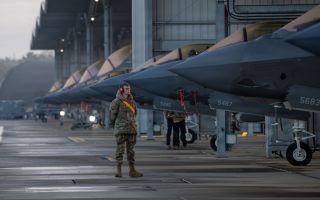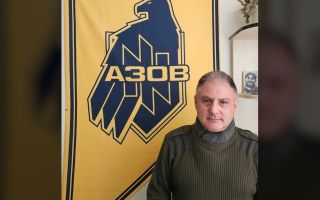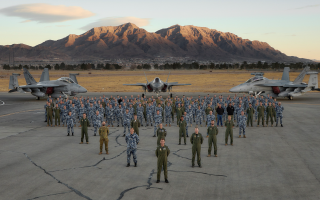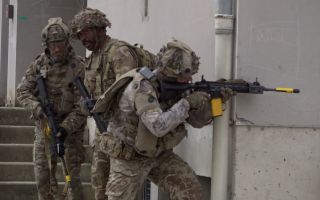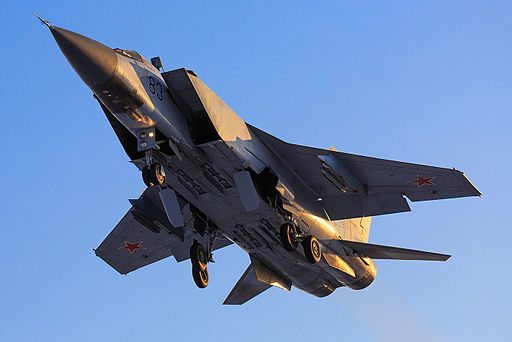
Comment: US Policy In Syria? Ask The Russians...

The U.S. strategy in Syria is staggering around looking for ideas and inspiration. Neither appear to be forthcoming, but the Russians are pretending to offer both while continuing to steal a march in the Great Game.
While the Americans have been busy failing, the Russians have been fast tracking reinforcements into Syria.
They are positioning themselves as the key power broker as they try to maintain their influence in Syria by propping up President Assad in order to keep their foothold in the Mediterranean.
Now the White House looks ready to accept an offer from Moscow for direct military-to-military talks on the build-up of Russian forces.
This will allow Secretary of State John Kerry to growl gravely into the cameras that 'The US is concerned about... and advise the Russians to... '. Meanwhile the Russian planes and ships will keep arriving at Latakia and Tartus.
More from Forces.tv: Putin In Syria: The War Just Got A Whole Lot Worse
The Russians have now almost completed the runways they are building at the Bassel al Assad Air Base in Latakia. Hardware has appeared including tanks, armoured personal carriers, military helicopters and a reported four fighter jets. An artillery battery is in place to protect these along with dozens of ground troops, probably Marines. It remains to be seen how many more aircraft are flown in.
Bloomberg cites U.S. officials as telling them that Russia plans to deploy MiG-31 interceptors and Su-25 attack aircraft, while Reuters says Moscow is to send SA-22 surface-to-air missile systems.
If this happens then there is the potential for a scenario in which Russian planes attack anti-Assad forces who are partially armed by the USA.
If they were to go up against Islamic State, then they could find themselves in the same airspace as American warplanes doing the same. No wonder the Americans feel they may need to talk.
The Russian moves make the possibility of a unilateral No Fly Zone, even over parts of Northern Syria, extremely problematic for the Americans. What if the Russians do not recognize this zone and reserve the right to defend their ally, Assad, in all parts of the country?
So at the moment the Americans may be limited in their use of the Incirlik Air Base in Turkey, nervous about coming into contact with Russian forces and wary of Russian missile batteries.
At the same time they admit the number of US trained anti-Assad oppostion forces inside Syria may be as few as five. This amounts to an abject failure in a policy supposed to deliver more than 5,000 trained troops a year. Concurrent to this debacle is their lack of a coherent diplomatic policy.
On the other hand the Russian Foreign Ministry in Moscow is a blur of visitors from Iran, Israel, Syria, Kuwait, Saudi Arabia, Turkey and other countries. Early next week the Iranians are in town again, followed by the Israeli Prime Minister Benyamin Netanyahu.
What do the Russians get out of all this? Firstly they ensure the survival of the Syrian regime - even if it is confined to the Damascus, Homs and Latakia regions. They may be able to deliver some battlefield success for the regime starting in the Sahl-al-Ghab region where the elite 4th Armoured Division is preparing for an offensive.
Moscow is also now well positioned to block any American ideas which emerge, although at the moment the Obama administration seems devoid of such things.
Perhaps most importantly for Russia is that it can now use its increasingly strengthened position in Syria to eke out concessions from the USA and others over a matter of even greater importance to them - Ukraine and sanctions.
This coming week sees the opening of the annual UN General Assembly in New York. This is an ideal venue for meeting 'in the margins'. The Americans can try to find out how much the Russians are committing to Syria, and what Putin will want in return for drawing in his claws.
Tim Marshall is the former Foreign and Diplomatic Editor for Sky News. He can now be found at the international relations website TheWhatAndTheWhy.com




